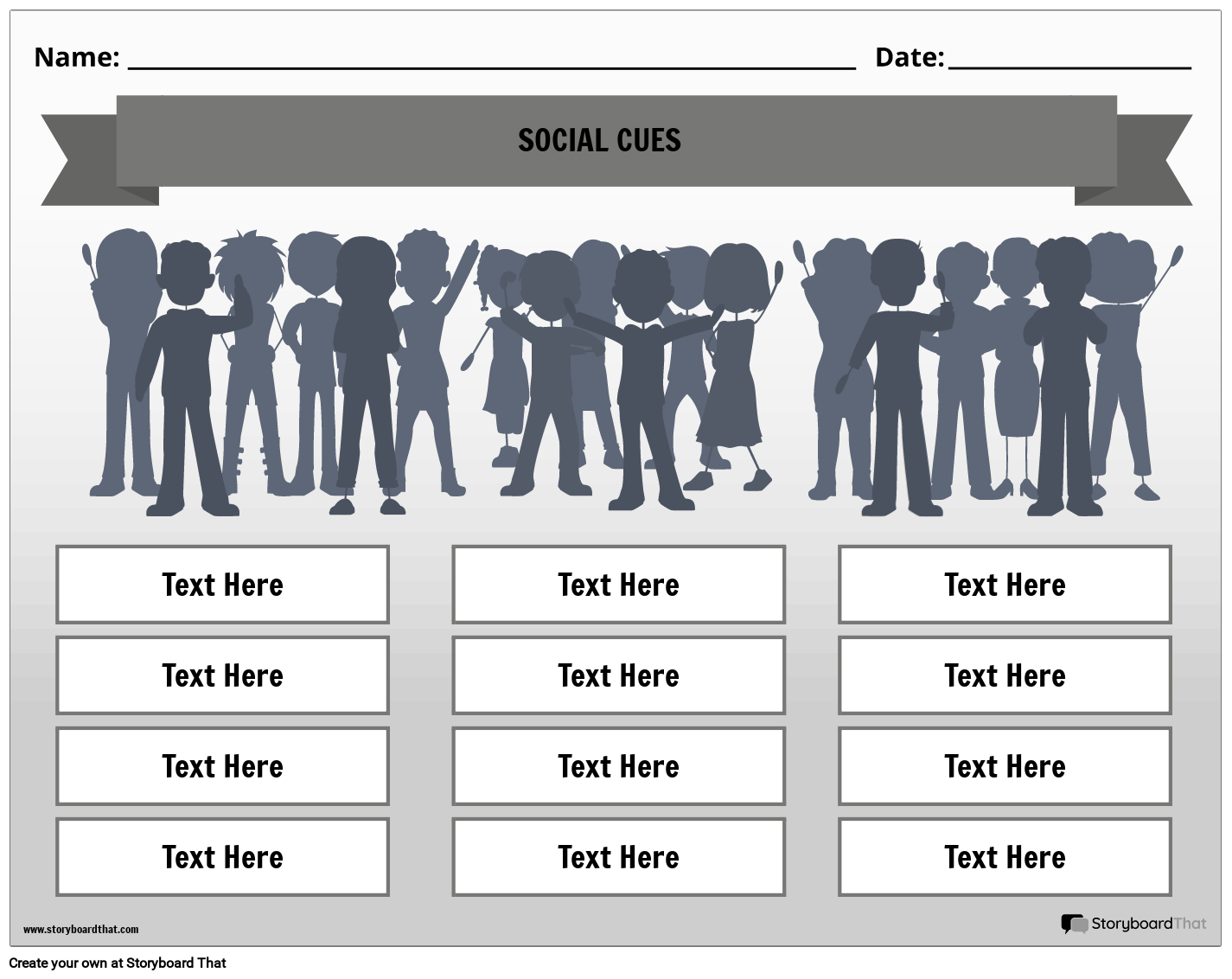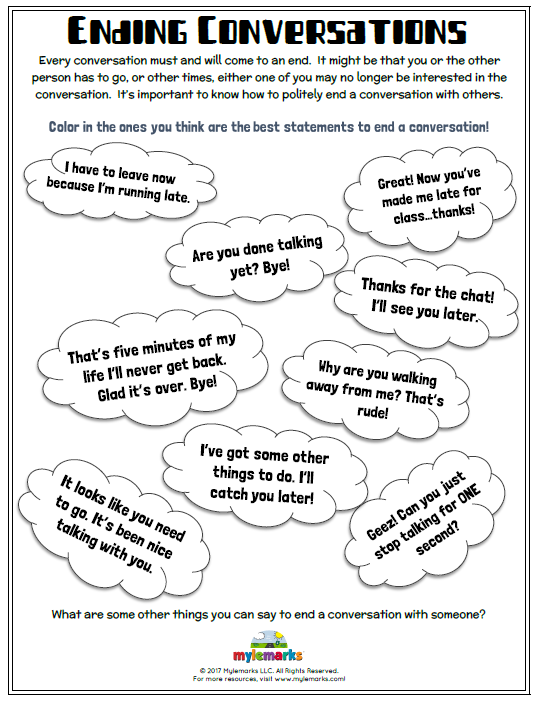Social Cues Worksheets - These worksheets can be used to assist with determining needs or identifying concerns. This activity will support student by:. Social cues are signals people use to communicate without words. To see social cues, you can look at a person’s: Perspective taking/social cognition reciprocal interactions for students who have difficulties with: Use none, all or just a few. These worksheets cover a wide range of social skills, including communication, empathy, active listening, conflict resolution, and emotional.
This activity will support student by:. These worksheets can be used to assist with determining needs or identifying concerns. To see social cues, you can look at a person’s: Perspective taking/social cognition reciprocal interactions for students who have difficulties with: These worksheets cover a wide range of social skills, including communication, empathy, active listening, conflict resolution, and emotional. Use none, all or just a few. Social cues are signals people use to communicate without words.
These worksheets can be used to assist with determining needs or identifying concerns. To see social cues, you can look at a person’s: Social cues are signals people use to communicate without words. Use none, all or just a few. These worksheets cover a wide range of social skills, including communication, empathy, active listening, conflict resolution, and emotional. Perspective taking/social cognition reciprocal interactions for students who have difficulties with: This activity will support student by:.
Free Social Skills & Cues Worksheets StoryboardThat
Use none, all or just a few. To see social cues, you can look at a person’s: This activity will support student by:. These worksheets can be used to assist with determining needs or identifying concerns. These worksheets cover a wide range of social skills, including communication, empathy, active listening, conflict resolution, and emotional.
Social Cues Activities, Preschool Social Skills, Social Skills Autism
Perspective taking/social cognition reciprocal interactions for students who have difficulties with: These worksheets can be used to assist with determining needs or identifying concerns. This activity will support student by:. Use none, all or just a few. To see social cues, you can look at a person’s:
Teaching Social Cues Worksheets
These worksheets cover a wide range of social skills, including communication, empathy, active listening, conflict resolution, and emotional. Perspective taking/social cognition reciprocal interactions for students who have difficulties with: Use none, all or just a few. Social cues are signals people use to communicate without words. To see social cues, you can look at a person’s:
Pin on csl stuff
Social cues are signals people use to communicate without words. Use none, all or just a few. This activity will support student by:. These worksheets can be used to assist with determining needs or identifying concerns. These worksheets cover a wide range of social skills, including communication, empathy, active listening, conflict resolution, and emotional.
Children's Social Skills Worksheets Social Skills Activities
These worksheets cover a wide range of social skills, including communication, empathy, active listening, conflict resolution, and emotional. To see social cues, you can look at a person’s: Use none, all or just a few. Perspective taking/social cognition reciprocal interactions for students who have difficulties with: This activity will support student by:.
Social Cues Worksheet
Social cues are signals people use to communicate without words. This activity will support student by:. Use none, all or just a few. These worksheets can be used to assist with determining needs or identifying concerns. These worksheets cover a wide range of social skills, including communication, empathy, active listening, conflict resolution, and emotional.
Free Social Skills Worksheets
Social cues are signals people use to communicate without words. To see social cues, you can look at a person’s: Perspective taking/social cognition reciprocal interactions for students who have difficulties with: This activity will support student by:. These worksheets cover a wide range of social skills, including communication, empathy, active listening, conflict resolution, and emotional.
Social Skills Worksheets for Kids and Teens in 2022 Social cues
This activity will support student by:. Perspective taking/social cognition reciprocal interactions for students who have difficulties with: These worksheets cover a wide range of social skills, including communication, empathy, active listening, conflict resolution, and emotional. To see social cues, you can look at a person’s: Social cues are signals people use to communicate without words.
Social Skills for Kids in 2020 Social emotional learning, Social
To see social cues, you can look at a person’s: These worksheets cover a wide range of social skills, including communication, empathy, active listening, conflict resolution, and emotional. Use none, all or just a few. This activity will support student by:. These worksheets can be used to assist with determining needs or identifying concerns.
Social Skills Worksheets for Kids and Teens
To see social cues, you can look at a person’s: Social cues are signals people use to communicate without words. These worksheets cover a wide range of social skills, including communication, empathy, active listening, conflict resolution, and emotional. Perspective taking/social cognition reciprocal interactions for students who have difficulties with: These worksheets can be used to assist with determining needs or.
This Activity Will Support Student By:.
To see social cues, you can look at a person’s: Use none, all or just a few. Social cues are signals people use to communicate without words. These worksheets cover a wide range of social skills, including communication, empathy, active listening, conflict resolution, and emotional.
These Worksheets Can Be Used To Assist With Determining Needs Or Identifying Concerns.
Perspective taking/social cognition reciprocal interactions for students who have difficulties with:









